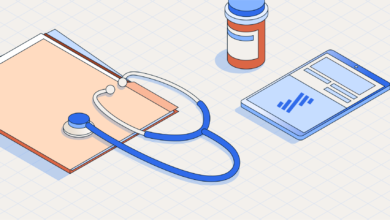
Recession vs Depression: The Main Differences, Explained
Did you know that approximately 145 million Americans have investments in stocks? Unfortunately, these investments can take a dive if the economy heads into a downward spiral. Not everyone understands the difference between depression and recession when it comes to economic performance, though.
We’ve put together a brief guide that has everything you need to know about recession vs depression. Let’s get started.
Table of Contents
Definition of Recession
A recession is a significant decline in economic activity that lasts for at least six months. This can be measured by a decrease in the gross domestic product (GDP), higher unemployment rates, and lower levels of trade and investment.
A recession is typically considered to be a negative event, as it often leads to reduced spending by consumers and businesses. It’s also worth noting that a recession can cause many people to be forced to file for unemployment and foreclose on their homes.
Definition of Depression
A depression is a more severe form of a recession and is typically characterized by a significant decline in economic activity that lasts for at least two years.
A depression can be measured by a decrease in the GDP, higher unemployment rates, and lower levels of trade and investment. A depression is typically considered to be a very negative event, as it often leads to reduced spending by consumers and businesses, as well as an increase in the number of defaults on loans and mortgages.
Causes of Recession
One of the most common causes is a decrease in consumer spending. This can be caused by a variety of factors, such as a decrease in disposable income, an increase in taxes, or a decrease in consumer confidence.
Another common cause of recessions is an increase in the cost of borrowing money. This can happen when interest rates rise, making it more expensive for businesses to borrow money for expansion or investment.
Finally, a recession can also be caused by an increase in the supply of goods and services relative to the demand for them. This can happen when businesses cut back on production due to a decrease in demand.
Causes of Depression
The most important cause of a depression is a structural imbalance in the economy.
This occurs when there is a sustained period of time when the amount of money that is available to be borrowed (the money supply) is greater than the amount of money that businesses and consumers want to borrow (the demand for money). This can lead to a decrease in economic activity, as businesses and consumers cut back on spending in order to reduce the amount of debt they have.
What Are the Signs of a Recession?
There are a number of different signs that a recession is underway.
One of the most common indicators is a decrease in the GDP. This can be measured by looking at the growth rate of the economy over a period of time. If the growth rate decreases for two consecutive quarters, then it is typically considered to be a recession.
Another common indicator of a recession is an increase in unemployment. This happens when businesses reduce their levels of production, leading to layoffs and a higher unemployment rate. A decrease in trade and investment is also considered to be a sign of a recession.
How can the US avoid a recession?
Some economists believe that the best way to avoid a recession is by increasing government spending. Others believe that the best way to avoid a recession is by reducing taxes. There are also a number of policies that can be implemented during a recession in order to help alleviate its effects, such as providing unemployment benefits and increasing infrastructure spending.
Is the US Headed Toward a Recession?
There is no definitive answer to this question. However, there are a number of factors that suggest that the US economy may be headed for a recession.
These include the ongoing trade war with China, the increasing cost of borrowing money, and slowing growth in consumer spending. Supply chain issues related to the pandemic and Ukraine conflict are also contributing factors.
So, is a recession coming? You can check out this page to learn more.
What Are Some Ways to Protect Yourself From the Effects of a Recession or Depression?
One of the most important things you can do is diversify your investments. This means investing in a variety of different asset classes, such as stocks, bonds, and real estate. This will help to ensure that your portfolio is not too heavily invested in any one particular asset class.
Another important thing you can do is to have an emergency fund that can cover your expenses for three to six months. This will help to ensure that you are able to maintain your lifestyle in the event that you lose your job or experience a significant decrease in income. Finally, it is also important to stay informed and make sure that you are aware of the signs of a recession or depression.
This way, you can take steps to protect yourself and your family if the economy takes a turn for the worse.
Recession Vs Depression Might Seem Difficult to Understand
However, it’s much more straightforward than you might think. Be sure to keep the above info about recession vs depression in mind so that you can take the necessary steps to prepare for any financial setbacks you may experience.
Need other useful info that can help you out later on? Be sure to take a look at our blog!








